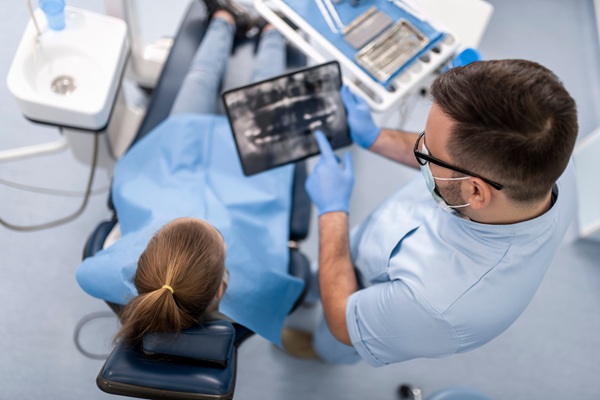 If you have opted for implant dentistry to replace your missing teeth, you will need to decide on fixed or removable restorations. Read on to learn about implant dentistry and your options. Removable implant-supported restorations can be snapped on and off the abutments anytime there is a need to take off. In contrast, fixed restorations are permanent, and you will need to visit a dentist to take them off.
If you have opted for implant dentistry to replace your missing teeth, you will need to decide on fixed or removable restorations. Read on to learn about implant dentistry and your options. Removable implant-supported restorations can be snapped on and off the abutments anytime there is a need to take off. In contrast, fixed restorations are permanent, and you will need to visit a dentist to take them off.
Regardless of your choice of implant-supported restoration, implant dentistry provides full dental functions and a more confident smile.
Implant dentistry: Fixed vs. removable dental implant restorations
Since they are permanently connected to dental implants, fixed implant-supported restorations appear, feel, and operate exactly like natural teeth. Patients will not have to take them out every night to clean them or store them in special solutions while they sleep. In some cases, one might even forget the dental implant fixture is there at all.
In the past, fixed implant-supported dentures needed more jaw bone for support than removable dentures, making them unsuitable for patients who had suffered a significant level of bone loss. However, a complete arch with just four implant restorations is now an option for some of these individuals. Bone grafting may also be recommended to boost the jaw’s strength in preparation for fixed implant-supported dentures.
Patients can clean fixed implant restorations exactly like their natural teeth, except for the tiny area where the restoration meets the gums, which requires proper attention to avoid the accumulation of food debris and plaque. Patients can opt for water flossers, floss threaders, or tiny interdental brushes to make cleaning simpler.
Removable implant-supported restorations
Removable implant-supported dentures are a hybrid between conventional dentures and fixed implant-supported dentures, providing many of the advantages of fixed implant-supported dentures while still having some of the disadvantages of traditional dentures. They feel more like conventional dentures, despite the fact that they do not need sticky adhesives and are firmly snapped onto the implants, so they never slide or move. They are a little bigger, and they have to be taken off every night for cleaning. Patients can put their teeth back on in the morning.
Removable implant dentures are a better choice than fixed dentures if the patient has experienced jawbone loss since they need less support compared to a fixed option. Removable implant denture alternatives are also considerably less expensive than fixed implant dentures, significantly benefiting many patients. Furthermore, implant-supported removable dentures are simpler to clean since it is possible to remove them for hygiene.
Ready to replace your missing teeth?
When it comes to replacing missing teeth, there is no generalized approach since each patient has unique treatment objectives and dental requirements. The easiest way to figure out which option is ideal for you is to come in for a consultation. The dentist will perform a comprehensive exam, review your dental and medical history, and speak with you about your expectations to determine which tooth-replacement options are appropriate for you.
Request an appointment or call Gledhill Dental at 509-800-8410 for an appointment in our Kennewick office.
Related Posts
Implant supported dentures combine traditional dentures with permanent dental implants to provide a stable and secure tooth restoration option. Unlike traditional removable dentures, this option is supported by two or more dental implants rather than your gum tissues. The additional stability of dental implants may make it simpler to bite and chew meals, particularly with…
Having a solid handle on good oral hygiene basics will help preserve the integrity of your teeth and mouth health for a long time to come. Steering clear of cavities, receding gums, or decay ensures that your smile is bright and beautiful for as long as possible. If you think you already have an excellent…
Having a firm understanding of oral hygiene basics can prevent tooth decay, gum disease, and general oral discomfort. Human beings go through life developing a range of habits that impact oral health, some of which are good and some of which are bad. Avoiding these damaging behaviors promotes strong teeth and gums that can last…


